Sustainable Animal Feed, Nutrition and Production
A special issue of Sustainability (ISSN 2071-1050). This special issue belongs to the section "Health, Well-Being and Sustainability".
Deadline for manuscript submissions: closed (30 September 2023) | Viewed by 1154
Special Issue Editors
Interests: sustainable practices within the realms of agriculture and animal husbandry; the innovative methods, technologies, and management strategies of sustainable agriculture; agricultural and animal husbandry activities
Special Issues, Collections and Topics in MDPI journals
Interests: herd productivity; nutritional and feeding challenges; diet quality and the ruminal fermentation process; ecological and biochemical functions of the ruminal ecosystem using phytogenic substances as natural feed additives; innovative nutritional approaches and alternative feed resources to reduce rumen methane production and enhancing animal performance and profitability in a sustainable manner
Special Issues, Collections and Topics in MDPI journals
Special Issue Information
Dear Colleagues,
Livestock production is becoming increasingly sophisticated around the world, in order to increase productivity and meet the expanding demand for animal protein as result of a growing population. All animal producers, but highly industrialized enterprises in particular, face significant difficulty in adjusting to the growing public relevance of sustainability. Agriculture in general, and livestock farming in particular, are major contributors to environmental degradation worldwide, especially in regions where livestock are raised in a high animal density. To further minimize emissions associated with animal production, it is essential to implement cutting-edge technologies such as current feed strategies using beneficial feed additives, manure management methods and energy use efficiency.
Feed additives are substances that are incorporated into animal diets in order to improve nutrient utilization and performance and alleviate the impact of the diet on both the risk of metabolic diseases and environmental impacts as well. Concerns about the presence of chemical residues in animal products (milk and meat) as a result of the use of synthetic feed additives in animal diets have prompted animal scientists to look for safer natural alternatives that could be used in organic livestock farming.
This topic provides valuable information for livestock farmers interested in the practical use of natural compounds, as well as their real impact on livestock production, health, and the environment.
This Special Issue concentrates on using natural, feasible nutritional strategies that can enhance animal productivity and may alleviate the environmental impacts of methane or nitrogen emissions. As a result, we invite livestock scientists and researchers from around the world to submit their valuable research work, case studies, and reviews relevant to this context.
Dr. Waleed Al-Marzooqi
Dr. Hani El-Zaiat
Guest Editors
Manuscript Submission Information
Manuscripts should be submitted online at www.mdpi.com by registering and logging in to this website. Once you are registered, click here to go to the submission form. Manuscripts can be submitted until the deadline. All submissions that pass pre-check are peer-reviewed. Accepted papers will be published continuously in the journal (as soon as accepted) and will be listed together on the special issue website. Research articles, review articles as well as short communications are invited. For planned papers, a title and short abstract (about 100 words) can be sent to the Editorial Office for announcement on this website.
Submitted manuscripts should not have been published previously, nor be under consideration for publication elsewhere (except conference proceedings papers). All manuscripts are thoroughly refereed through a single-blind peer-review process. A guide for authors and other relevant information for submission of manuscripts is available on the Instructions for Authors page. Sustainability is an international peer-reviewed open access semimonthly journal published by MDPI.
Please visit the Instructions for Authors page before submitting a manuscript. The Article Processing Charge (APC) for publication in this open access journal is 2400 CHF (Swiss Francs). Submitted papers should be well formatted and use good English. Authors may use MDPI's English editing service prior to publication or during author revisions.
Keywords
- livestock production
- animal performance
- natural additives
- sustainability
- environment
- immunity
Benefits of Publishing in a Special Issue
- Ease of navigation: Grouping papers by topic helps scholars navigate broad scope journals more efficiently.
- Greater discoverability: Special Issues support the reach and impact of scientific research. Articles in Special Issues are more discoverable and cited more frequently.
- Expansion of research network: Special Issues facilitate connections among authors, fostering scientific collaborations.
- External promotion: Articles in Special Issues are often promoted through the journal's social media, increasing their visibility.
- e-Book format: Special Issues with more than 10 articles can be published as dedicated e-books, ensuring wide and rapid dissemination.
Further information on MDPI's Special Issue polices can be found here.






